You don’t need a swimming costume you won’t have to hug trees and it’s proven to alleviate stress, improve sleep, lower blood pressure and defend against cancer. This is shinrin-yoku, which loosely translates to ‘forest bathing’. In the last few years this phenomenon has flown the nest from its birthplace in Japan and there are now forest therapy guides all over the world.
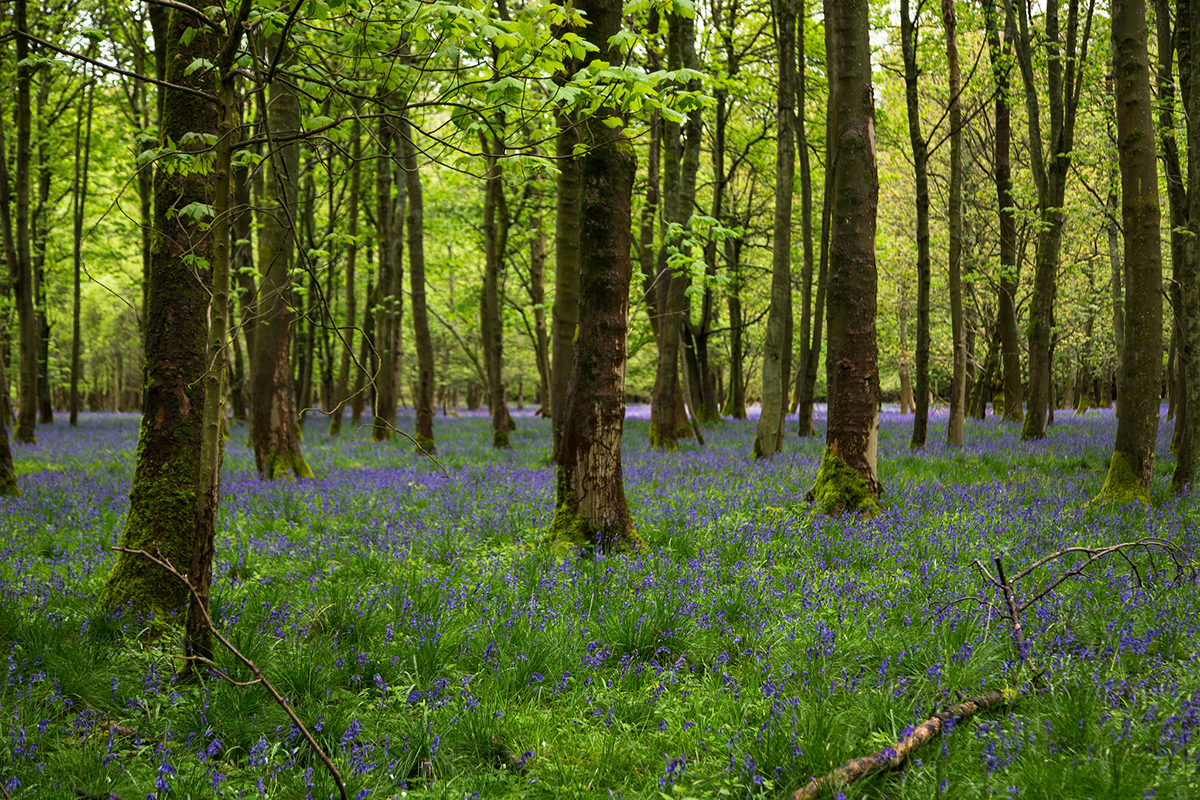
Bluebell carpets (Photo: Adrian Scottow via Flickr)
I have to admit, when I first came across shinrin-yoku, or ‘forest bathing’, the cynic within me perked up a bit. A guided walk in the forest? Surely that takes away all the fun? Surely the whole point of the forest as a healer is that it’s free and accessible to anyone? All these thoughts buzzed around my mind just a little slower than my finger which was on the mouse clicking the ‘book’ button for my first session. In spite of all of my reasoning I just couldn’t resist. Try everything at least once right?
It was spring time when I arrived in South West England’s Forest of Dean and the bluebells were beginning to peer out into the world from beneath a carpet of moss. I joined a group of three others led by Carina, a trained forest guide who explained that there was no particular destination on this walk, and that the best way to go was to allow our senses to direct us. She taught us what she knew about yugen, a Japanese word not directly translatable into English but directly related to the sense of awe felt when immersed in nature. The term was beautifully defined by the playwright Zeami Motokiyo as “the feeling you get when you wander in a huge forest without thought of return”.
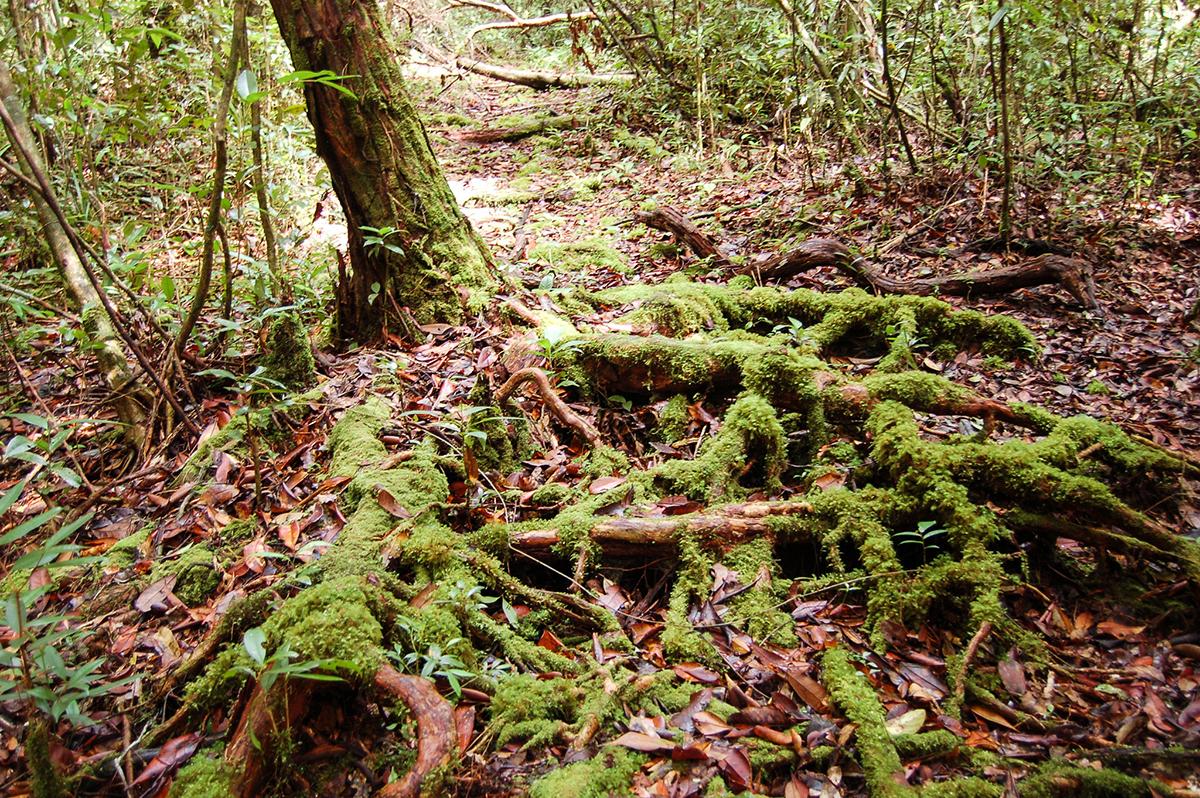
Forest Floor (Photo: CIFOR via Flickr)
With this idea settled in my mind and treading slowly through the foliage I was guided by the direction of the breeze to my right, then the song of a bird up ahead, thinking not of where I was going or how to get back, but simply appreciating being there and being part of it.
My feet crunched tracks into a barely beaten path and as I wandered out into the sun I squinted to see what was there. At that moment Carina offered us the first in a series of “invitations to notice”. This one was simple. To close our eyes and tune into our other senses. We were invited to taste the air, feel the warmth of the sun on our skin, notice the way the sounds of the place shaped the environment we were experiencing. I understood then the name ‘forest bathing’. The sun poured over my skin like warm water and the smells steamed through the air around me. Birds serenaded timeless classics to us and as I breathed I tasted the earth. For me, a walk in the woods is usually about stretching my legs, breathing in some fresh air and making a decision or two about the week to come. This was something totally different.
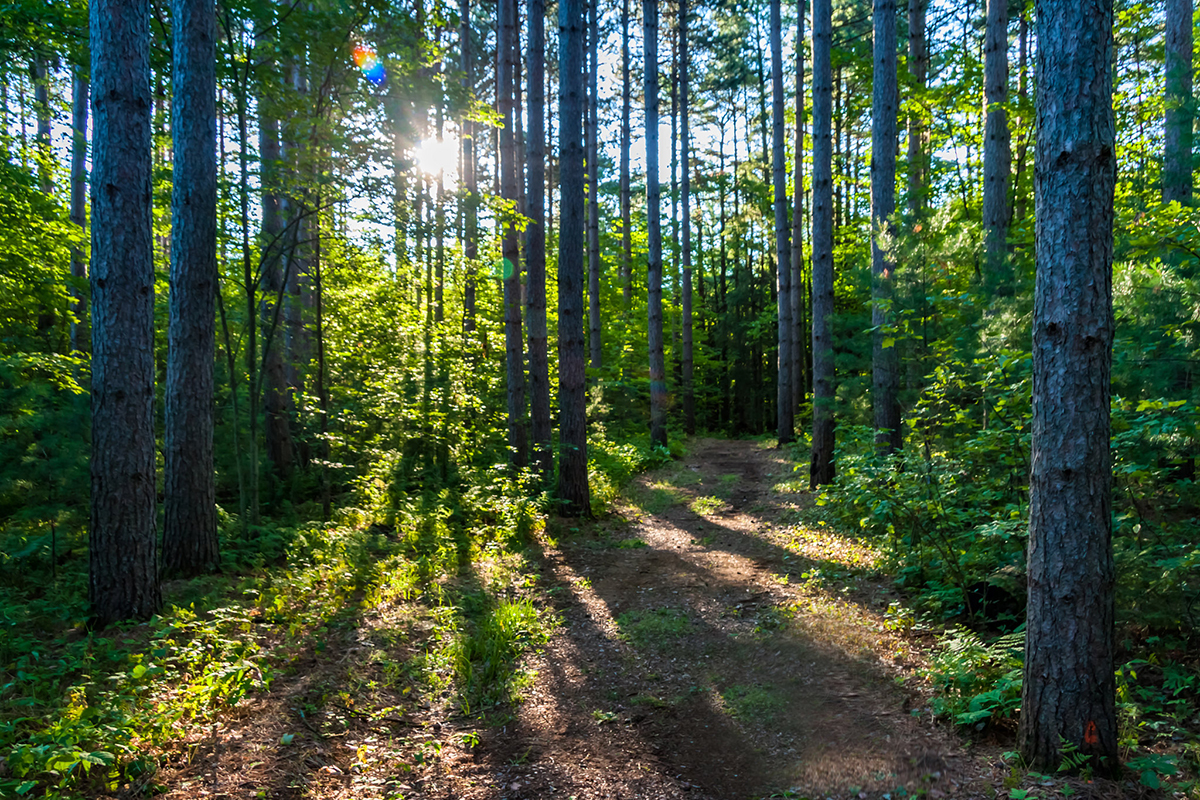
A sunny spot (Photo: Michel Rathwell via Flickr)
A part of what made it different was the things I learnt from Carina about the possibilities of our sensory being. Acknowledging the complex and advanced pieces of hardware that we live inside allowed me tap into the vast potential of the felt experience. Carina explained that there are many more ways to conceptualise the way we feel beyond the traditional five senses. In forest bathing, touch, taste, smell, sight and sound are only the first level of nine levels of feeling. My favourite of these nine other levels is the heart feeling sense, or sense of the present moment, something which even the most rational and analytical part if me could not explain away.
A new friend, an old friend
As we continued on our wander, Carina invited us to “meet a tree”. Fear not cynics, you don’t have to talk to it. Just merely choose a tree that appeals to you and spend some time near or around it and see what happens.
As I wandered, the dried out edges of leaves of an oak tree caught in my hair and it felt like I was being asked to pause. I stopped at this particular tree to see what it had to teach me and ended up doing a head stand against it. Why? I have no idea. My granny always used to challenge me to do a headstand (she was the champion) and I could never hold it for longer than a second before falling flat on my back. But this time it felt easy and the tree propped me up. Being upside down literally and physically flipped my perspective. My eyes were at ground level and so I saw the tiny insects and bugs pottering about over the fallen leaves up close. A lady bird climbed onto my face and wandered up my eyebrows. My eyes were swallowed whole by the patterns that I saw and the cell structure of leaves which looked so familiar to human anatomy.
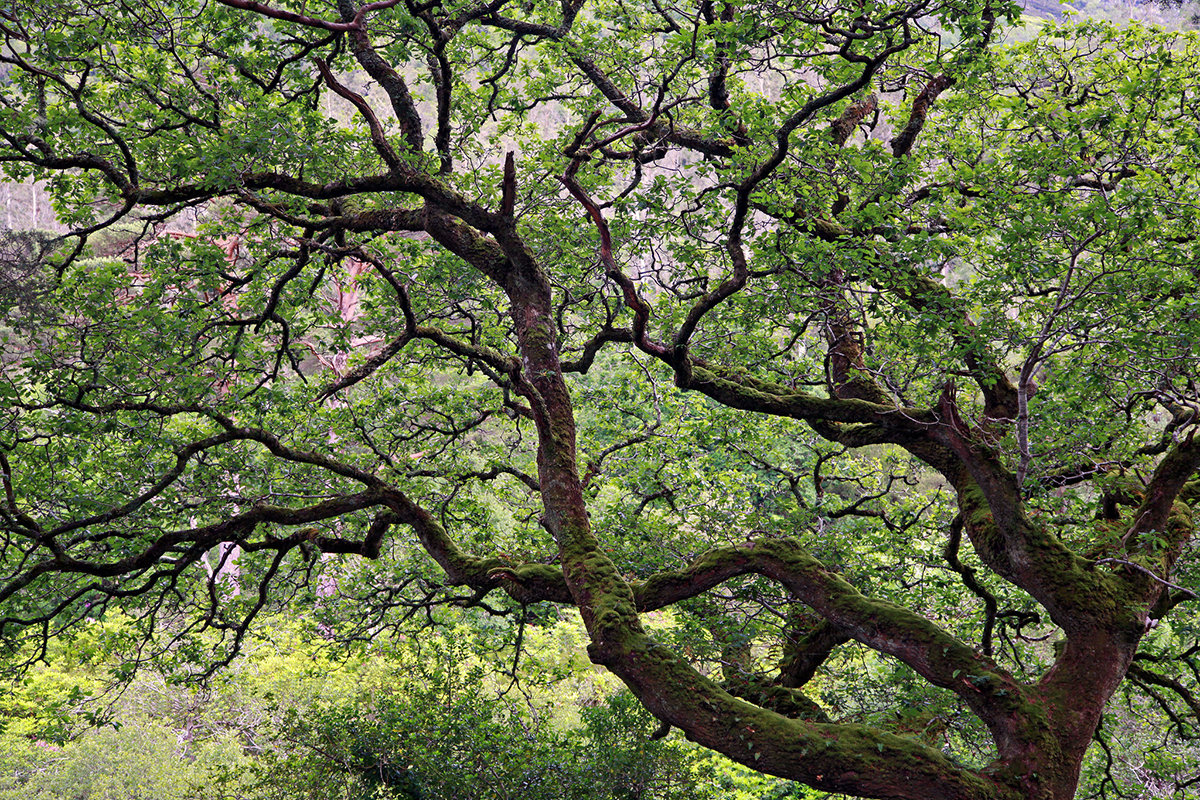
Life Patterns (Photo: Graham Higgs via Flickr)
The Forest is home to the entire life cycle, the roots and soil fed by the decaying foliage, and new buds sprouting at every moment a leaf falls. It’s rare to be in such a complete ecosystem of life, and it reminded me to be grateful for this invitation to be a member of the community of life on earth.
After some time, we were given the option to come and talk about what we’d experienced, aided by a cup of tea brewed from blackberries amongst the trees. The stories were journeys of realigning with natural rhythms, retuning things like breathing, and slowing down the pace of walking. Someone had felt intense feelings of anger and upset coming from the tree. It felt betrayed, she explained, by human exploitation of the earth’s resources. Listening in to nature, it seemed, allowed us to listen in to truths we all too easily hide.
E. O. Wilson suggested that “because we evolved in nature, we have a biological need to connect with it. We feel comfortable in nature because that is where we have lived for most of our life on earth”. The feeling of time spent in the forest was, for me, a similar feeling to reconnecting with an old friend. That grounding, timeless feeling is ultimately very healing.
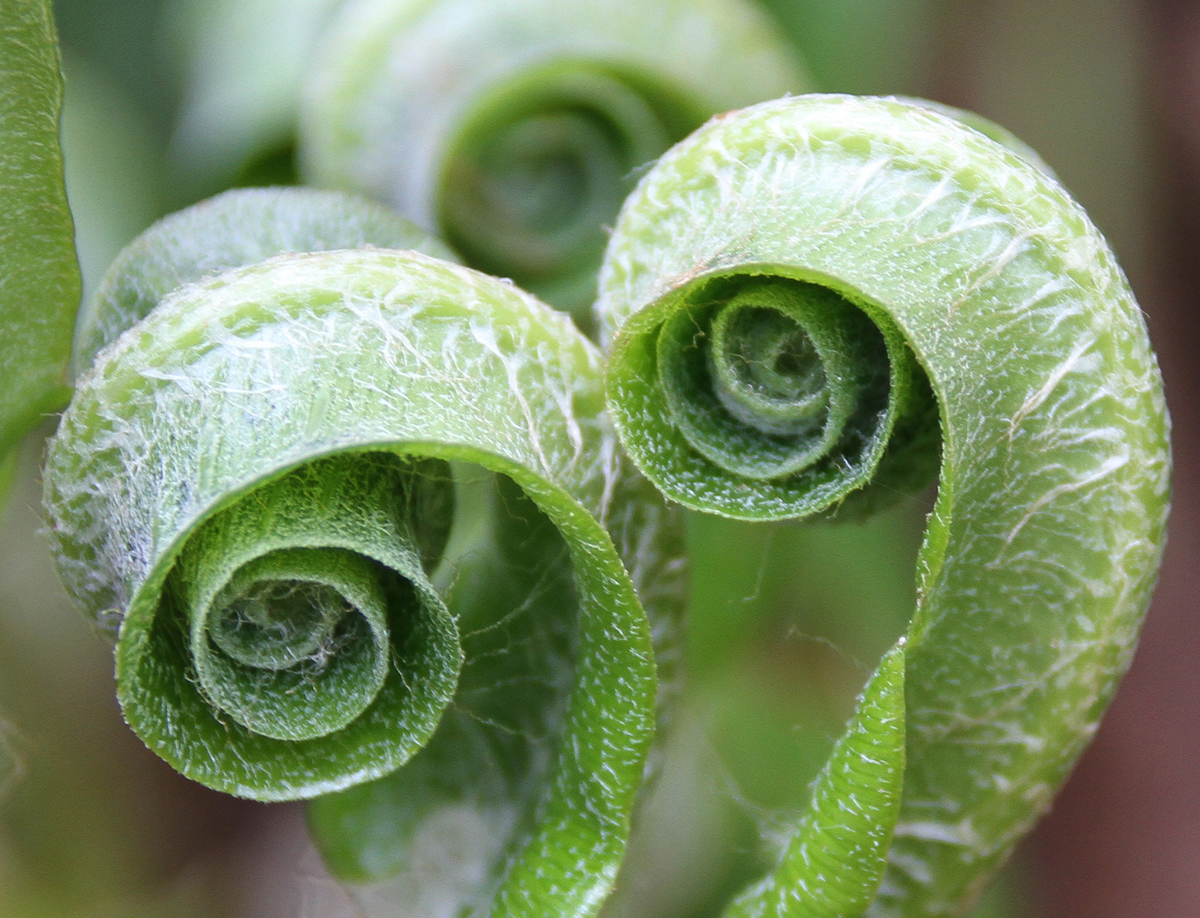
Unfurling fern (Photo: Tony Hisgett via Flickr)
The forest as the healer?
I’ve always struggled to get on board with many of the alternative healing therapies that have come my way. What was refreshing about forest bathing is that it doesn’t really involve any human interaction. Carina explained that the forest is the healer, she is merely the one opening the door to its potential, and that it was down to us to receive its treatment if we wanted to. I never liked being in the hands of someone who claimed they could make me better with their own powers, but I felt happy to hand that responsibility over to some trees, leaves, birds and insects. I felt they could probably offer me something that humans couldn’t.
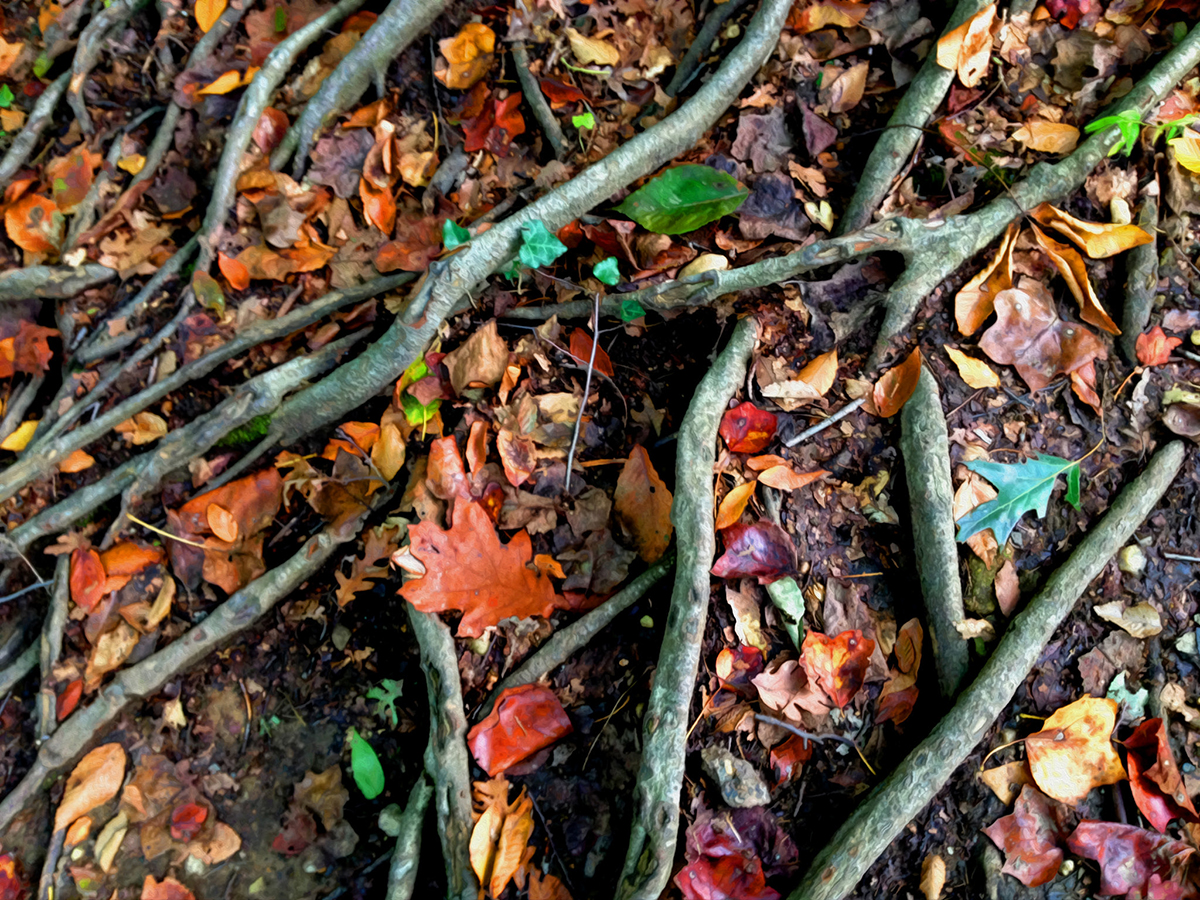
Leaves and Roots (Photo: Christopher Sessums via Flickr)
In recent years, scientists have begun to transform the understanding of this calming feeling we get in nature into a precise science. Since the conception of shinrin yoku in the early 80s in Japan, scientific research has helped to legitimize the importance of spending time in natural environments. Being in nature has been proven to improve natural sleep patterns, lower blood pressure and boost immunity. Not only this, but it also provides essential defensive tools against cancer. According to Qing Li in his book ‘Shinrin Yoku: the Art and Science of Forest Bathing’, when we inhale the air in the Forest, we inhale phytoncides, tiny antifungal, antimicrobial compounds that cause the human body to produce white blood cells known as ‘natural killer cells’. These are cells which combat mutational growths in the human body, protecting us from tumours and boosting our immune systems. It’s true then. That ‘dose of fresh air’ we sometimes need really is a legitimate prescription.
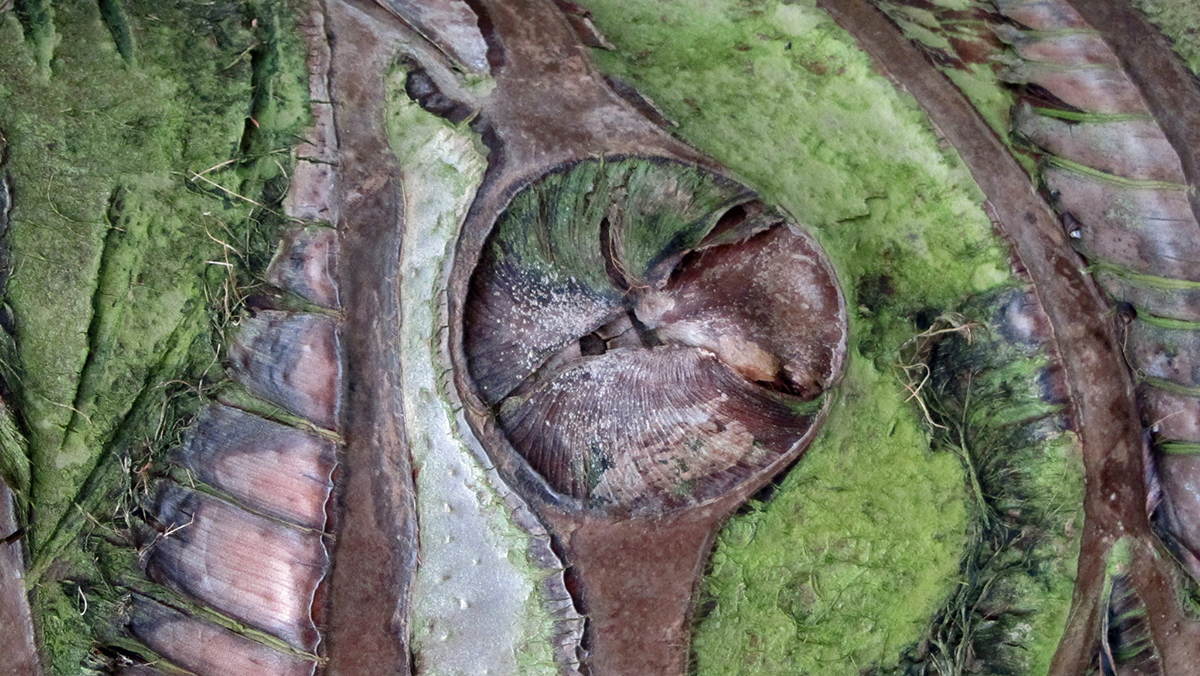
Looking closer (Photo: scrappy annie via Flickr)
After my session in the forest, I went back to Bristol where I was living and felt like I’d been tuned in a whole new way. I noticed the smells of the nature that was growing in the city, being offered the scent of pine as I passed a park, or rosemary growing outside someone’s garden. Stopping to enjoy these smells was the perfect excuse to pause, step out of my mind and into my body just for a brief moment in the chaos of a day of rushing around doing errands in the city. Audre Lorde’s suggestion that we can transform the phrase “I think, therefore I am” to “I feel, therefore I can be free” perfectly sums up what it is to forest bathe.
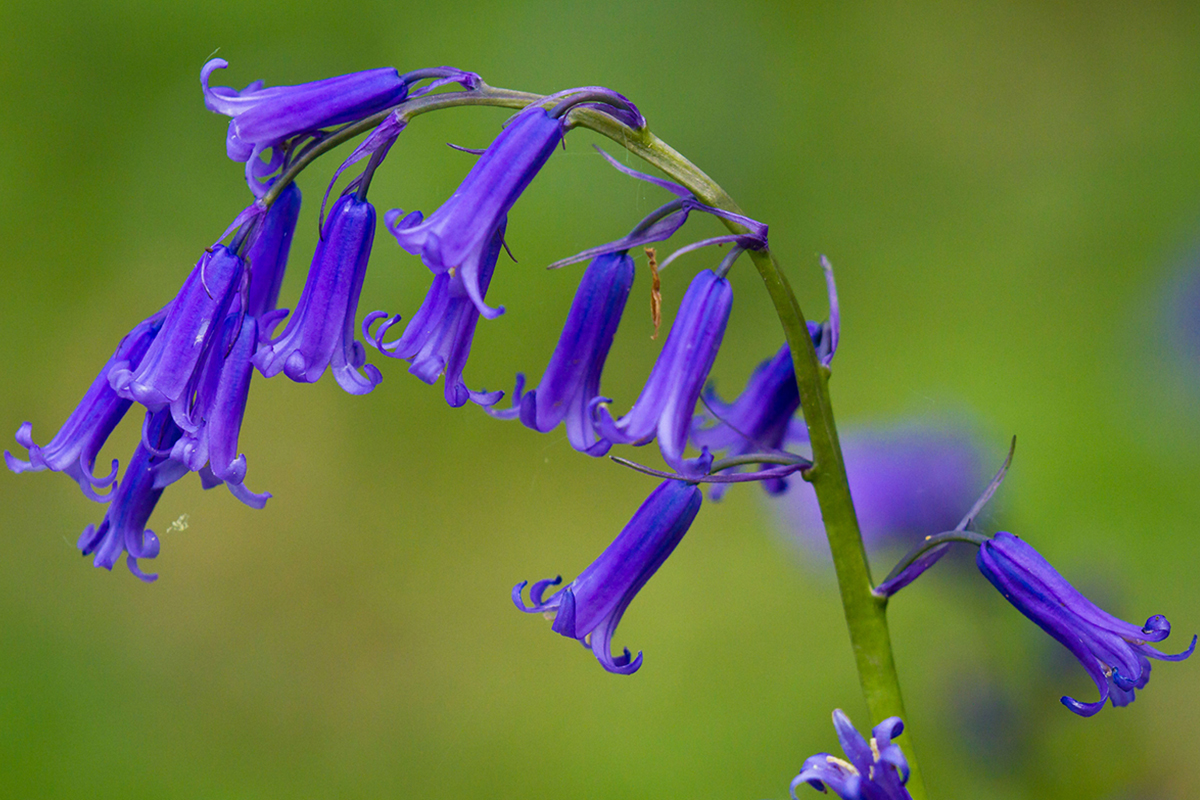
Bluebells (Photo: Natural England via Flickr)